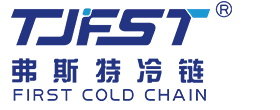IQF freezers are revolutionizing the food processing industry, offering unparalleled efficiency and quality in freezing and preserving food products. These advanced freezers are designed to rapidly freeze individual food items, maintaining their texture, flavor, and nutritional value. This technology not only enhances food safety and shelf life but also meets the growing demand for high-quality frozen foods. As the industry continues to evolve, IQF freezers are becoming an indispensable tool for food processors aiming to deliver superior products while optimizing their operational efficiency.
What is IQF Freezer?
IQF (Individual Quick Freezing) freezers are specialized equipment used in the food industry to freeze individual pieces of food quickly and efficiently. Unlike traditional freezing methods that freeze food in bulk, IQF technology ensures that each item is frozen separately, preventing them from sticking together and maintaining their quality. This method is particularly effective for preserving the texture, flavor, and nutritional value of food products. IQF freezers are commonly used for a variety of food items, including fruits, vegetables, seafood, and meat. The freezing process typically involves passing the food items through a conveyor belt in a freezing chamber where they are subjected to extremely low temperatures. This rapid freezing process helps to lock in the freshness and quality of the food, making IQF freezers a popular choice in the food processing industry.
Types of IQF Freezers
Spiral Freezer
Spiral freezers are a popular type of IQF freezer designed for high-volume production lines. These freezers utilize a spiral conveyor system, where food products are placed on trays that are continuously moved through the freezing chamber. The design allows for a compact footprint, making it ideal for facilities with limited space. Spiral freezers are known for their energy efficiency and ability to freeze a wide range of products, including baked goods, meats, and seafood. The continuous flow of products through the spiral system ensures consistent freezing and high throughput, making it a preferred choice for large-scale food processors.
Tunnel Freezer
Tunnel freezers are another common type of IQF freezer, particularly suitable for larger and bulkier food items. In this system, products are placed on a conveyor belt that moves through a long freezing tunnel. Air is circulated at high velocities to ensure uniform freezing of all products as they pass through the tunnel. Tunnel freezers are versatile and can be used for a variety of products, including meat, poultry, and baked goods. They offer flexibility in terms of product size and packaging, and are capable of handling high volumes, making them ideal for operations with diverse product lines.
Fluidized Bed Freezer
Fluidized bed freezers represent a more specialized approach within the IQF technology spectrum. This type of freezer uses a bed of air to suspend and cool individual food items, creating a ‘fluidized’ effect. The air flows upwards through a mesh conveyor belt, chilling the products as they move through the freezing chamber. This method is particularly effective for small, irregularly shaped items, such as diced fruits and vegetables. Fluidized bed freezers are known for their gentle handling of products, minimizing physical impact and preserving product quality. They are often used in industries where maintaining the integrity of the product is crucial.
IQF Freezer Market Trends
The IQF freezer market is experiencing significant growth, driven by advancements in freezing technology and increasing demand for high-quality frozen foods. According to a recent report by Research and Markets, the global IQF freezer market is projected to reach USD 2.5 billion by 2030, growing at a CAGR of 5.5% from 2023 to 2030. This growth is attributed to the rising adoption of IQF technology in various food processing sectors, including meat, seafood, fruits, and vegetables.
One of the key trends in the IQF freezer market is the increasing focus on energy efficiency and sustainability. Manufacturers are developing more energy-efficient models that not only reduce operational costs but also minimize environmental impact. For instance, the use of advanced insulation materials and optimized airflow systems in IQF freezers is helping to reduce energy consumption significantly. Additionally, the integration of IoT and smart technologies in IQF freezers is enhancing operational efficiency and enabling real-time monitoring and control of freezing processes.
Another significant trend is the growing demand for frozen convenience foods, which is driving the adoption of IQF technology in the retail and food service sectors. As consumers increasingly seek convenient and ready-to-eat meal options, food processors are turning to IQF freezers to preserve the quality and freshness of their products. This trend is particularly evident in the frozen fruits and vegetables segment, where IQF technology is used to maintain the nutritional value and texture of the products.
In terms of regional markets, Asia-Pacific is expected to be the fastest-growing market for IQF freezers, driven by the increasing population, rising disposable incomes, and growing demand for frozen foods. Countries like China and India are witnessing a surge in the consumption of frozen meat, seafood, and ready-to-eat meals, which is boosting the demand for IQF technology in the region. North America and Europe are also significant markets, with a strong presence of key players and a well-established food processing industry.
Overall, the IQF freezer market is poised for substantial growth in the coming years, driven by technological advancements, changing consumer preferences, and the increasing need for efficient and sustainable food processing solutions. As the industry continues to evolve, IQF freezers are expected to play a crucial role in shaping the future of the food processing sector.
Advantages and Disadvantages of IQF Freezer
Advantages of IQF Freezers
IQF freezers offer several advantages that make them a preferred choice in the food processing industry. Firstly, they provide superior product quality by rapidly freezing individual food items, which helps to preserve their texture, flavor, and nutritional value. This rapid freezing process prevents the formation of large ice crystals, which can damage the cellular structure of food and affect its quality upon thawing. Secondly, IQF freezers are highly efficient and versatile. They can handle a wide range of products, including fruits, vegetables, seafood, and meat, with various shapes and sizes. This versatility allows food processors to expand their product offerings and cater to diverse market demands.
Additionally, IQF freezers are designed for continuous operation, which increases productivity and reduces processing time. The continuous flow of products through the freezing chamber ensures consistent freezing and high throughput, minimizing downtime and maximizing efficiency. Moreover, IQF technology is known for its energy efficiency. Modern IQF freezers are equipped with advanced insulation materials, optimized airflow systems, and energy-saving components that reduce energy consumption and operational costs. Some models also feature energy recovery systems that capture and reuse energy within the freezing process, further enhancing their sustainability.
Disadvantages of IQF Freezers
Despite their advantages, IQF freezers also have some disadvantages. One of the main drawbacks is their high initial investment cost. IQF freezers are sophisticated machines with advanced technology and components, which can make them expensive to purchase and install. This high upfront cost can be a barrier for small and medium-sized enterprises (SMEs) that may not have the financial resources to invest in such equipment.
Another disadvantage is the complexity of the freezing process. IQF technology requires precise control of temperature, airflow, and processing time to achieve optimal results. This complexity necessitates skilled operators and proper maintenance to ensure the equipment operates efficiently and consistently. Any deviations from the specified parameters can result in poor product quality or even equipment failure.
Additionally, IQF freezers may require more space compared to traditional batch freezers. The continuous conveyor system and the need for proper air circulation can increase the footprint of the equipment, which may not be suitable for facilities with limited space. This larger footprint can also lead to higher construction and installation costs.
Lastly, the maintenance and servicing of IQF freezers can be more challenging due to their intricate design and components. Regular maintenance, including cleaning, lubrication, and inspection, is essential to prevent breakdowns and extend the lifespan of the equipment. This can lead to higher maintenance costs and the need for specialized technicians.
Conclusion
IQF freezers are transforming the food processing industry by offering a reliable and efficient method for freezing individual food items. With their ability to preserve product quality, enhance operational efficiency, and cater to diverse market demands, IQF technology is becoming increasingly popular among food processors worldwide. Despite their higher initial investment cost and operational complexity, the long-term benefits of IQF freezers in terms of product quality, energy efficiency, and productivity make them a worthwhile investment for companies looking to stay competitive in the market. As the demand for frozen foods continues to grow, IQF freezers are expected to play a crucial role in shaping the future of the food processing sector, driving innovation and setting new standards for quality and efficiency.

